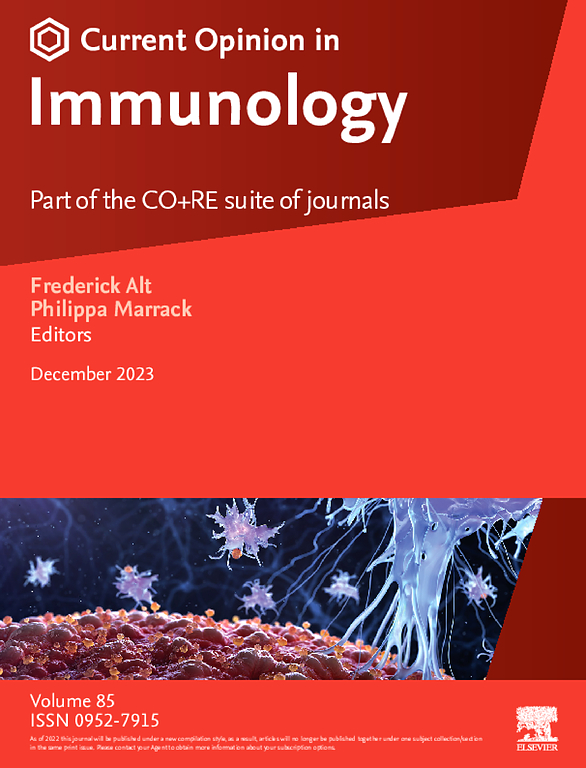Harnessing microglia-based cell therapies for the treatment of neurodegenerative diseases
IF 5.8
2区 医学
Q1 IMMUNOLOGY
引用次数: 0
Abstract
Given the growing evidence linking microglia to the onset and progression of various neurodegenerative diseases, these brain-resident macrophages have emerged as a promising cell type for targeted therapeutic interventions. This review highlights recent studies that utilized innovative, microglia-focused strategies for the treatment of diverse neurodegenerative disorders including lysosomal storage disorders, granulin frontotemporal dementia, and Alzheimer’s disease. Cutting-edge therapeutic strategies range from replacing faulty microglia with peripheral macrophage precursors or induced human pluripotent stem cell–derived microglia to engineering microglia that target toxic aggregates or deliver remediating payloads. We also examine the potential limitations as well as the clinical benefits of these strategies.
利用小胶质细胞疗法治疗神经退行性疾病
鉴于越来越多的证据表明小胶质细胞与各种神经退行性疾病的发生和进展有关,这些驻留在大脑中的巨噬细胞已成为一种有前途的靶向治疗干预细胞类型。这篇综述强调了最近利用创新的、以小胶质细胞为重点的策略治疗多种神经退行性疾病的研究,包括溶酶体贮积症、颗粒蛋白额颞叶痴呆和阿尔茨海默病。尖端的治疗策略包括用外周巨噬细胞前体或诱导人类多能干细胞衍生的小胶质细胞替代有缺陷的小胶质细胞,以及设计靶向毒性聚集体或提供修复有效载荷的小胶质细胞。我们还研究了这些策略的潜在局限性和临床益处。
本文章由计算机程序翻译,如有差异,请以英文原文为准。
求助全文
约1分钟内获得全文
求助全文
来源期刊
CiteScore
13.30
自引率
1.40%
发文量
94
审稿时长
67 days
期刊介绍:
Current Opinion in Immunology aims to stimulate scientifically grounded, interdisciplinary, multi-scale debate and exchange of ideas. It contains polished, concise and timely reviews and opinions, with particular emphasis on those articles published in the past two years. In addition to describing recent trends, the authors are encouraged to give their subjective opinion of the topics discussed.
In Current Opinion in Immunology we help the reader by providing in a systematic manner: 1. The views of experts on current advances in their field in a clear and readable form. 2. Evaluations of the most interesting papers, annotated by experts, from the great wealth of original publications.
Current Opinion in Immunology will serve as an invaluable source of information for researchers, lecturers, teachers, professionals, policy makers and students.
Current Opinion in Immunology builds on Elsevier''s reputation for excellence in scientific publishing and long-standing commitment to communicating reproducible biomedical research targeted at improving human health. It is a companion to the new Gold Open Access journal Current Research in Immunology and is part of the Current Opinion and Research(CO+RE) suite of journals. All CO+RE journals leverage the Current Opinion legacy-of editorial excellence, high-impact, and global reach-to ensure they are a widely read resource that is integral to scientists'' workflow.

 求助内容:
求助内容: 应助结果提醒方式:
应助结果提醒方式:


